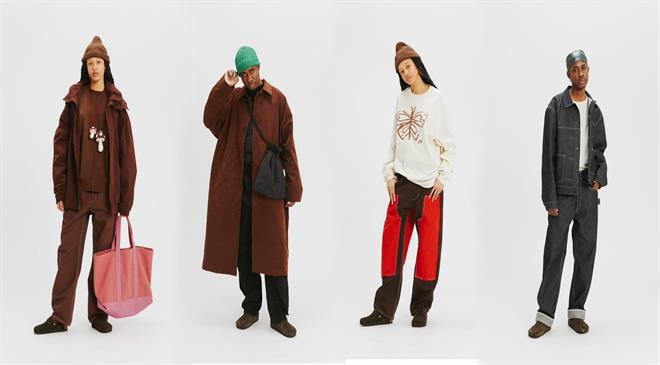
Dominic Sondag
Designer
Label - s.k. manor hill
My brand appeals to consumers who like classic attire
s.k. manor hill’s designs are created by its founder Dominic Sondag and are inspired by vintage garments and classic silhouettes from around the world. Conscientious construction and attention to detail are key in each piece of apparel. All items are made in New York City using natural fibre fabrics sourced from Europe and Japan. In an interview with Fibre2Fashion, the designer talks about his journey, collections, and shares some style tips for fashion enthusiasts.
Fibre2Fashion: What intrigued you towards the fashion industry and how would you illustrate your journey?
Dominic Sondag:
I was always into clothing since a baby, my mother says. I was always interested in design and art. I always worked in fashion retail starting in high school and throughout college. However, it wasn’t till my last semester of college in 2009 when I just needed elective credits to graduate from my school with my Graphic Arts Design degree that I studied abroad in Florence, Italy. While there, I enrolled exclusively in fashion classes which immediately led to an epiphany where I realised, I was meant to pursue a career in fashion design.
F2F: How would you define the aesthetics of your brand?
DS:
I really dislike defining my brand aesthetics; if I could, I eliminate this component of identifying where S.K. Manor Hill “fits” in the fashion world. If pressed, I would say that my brand appeals to consumers who like classic attire that is elegant, minimal, thoughtful, interesting, and detail-oriented; pieces that are inspired by a myriad of things, including historical elements, and diverse people and cultures in the world.
F2F: Where do you get your creative nutrition from and what fashion do you follow?
DS:
My sources of creative nutrition are endless. I am nourished from something as innocuous as walking the streets of New York, travelling and experiencing the many and varied cultures that exist around the globe, exploring Instagram, the internet, and most importantly vintage clothing. I look at a wide range of work, ranging from the contemporary to the high fashion world. I generally like the work being done by designers coming out of Belgium and Japan.
F2F: As an independent designer, what challenges have you encountered?
DS:
My major challenge is time allocation. I run a very small business; almost all of it (I contract my manufacturing) is done directly by me or by my father, who helps me to maintain the business structure. Business development, increased sustainability activities, improved support systems that would all benefit from increased attention and effort tend to receive inadequate attention because of the other, more immediate competing demands of the business.
F2F: What are your thoughts on sustainability and how do you include it in your creations?
DS:
I would love to be 100 per cent truly sustainable. I like to use predominately all natural fibres in my collections combined with fabrics that use natural dyes. When I’m successful in that pursuit it’s an amazing feeling (but it is not very common.) I produce 98 per cent of my collections locally, which reduces my carbon footprint and keeps the money in the local economy.
F2F: Can you share some insights about the New York fashion industry and what sets it apart from the European market?
DS:
I’ve been trying to expand my wholesale business into the European market since the inception of my brand. It has been a challenge. Some level of longevity seems necessary; my personal experience has been that the US, Japanese and Korean buyers are more willing to take a chance on a new emerging designer. European buyers seem to be more conservative and very number-driven.
F2F: How would you describe your clientele and what age group your brand attracts the most attention?
DS:
My clientele includes people who are interested in or actually working in creative, artistic spaces. The general age group is probably clustered in the 21–45-year-old range.
F2F: Suggest five tips to slay a basic day in style.
DS:
I would say,
- Keep it classic
- Contrasting elements
- Mixing brands/styles
- Be yourself
- Be comfortable
F2F: What are the forthcoming plans with your label?
DS:
To continue to grow my brand and do it in a thoughtful way that reflects my own beliefs in sustainability and doing so in an environmentally conscious way.

Rahul Mehta
Rahul Mehta
Aseem Prakash
Arun Sirdeshmukh
Bill D’Arienzo
Abhay Gupta
Pradip Mehta
Fanny Vermandel
Gabi Seligsohn
Anurag Batra




_8.JPG)








